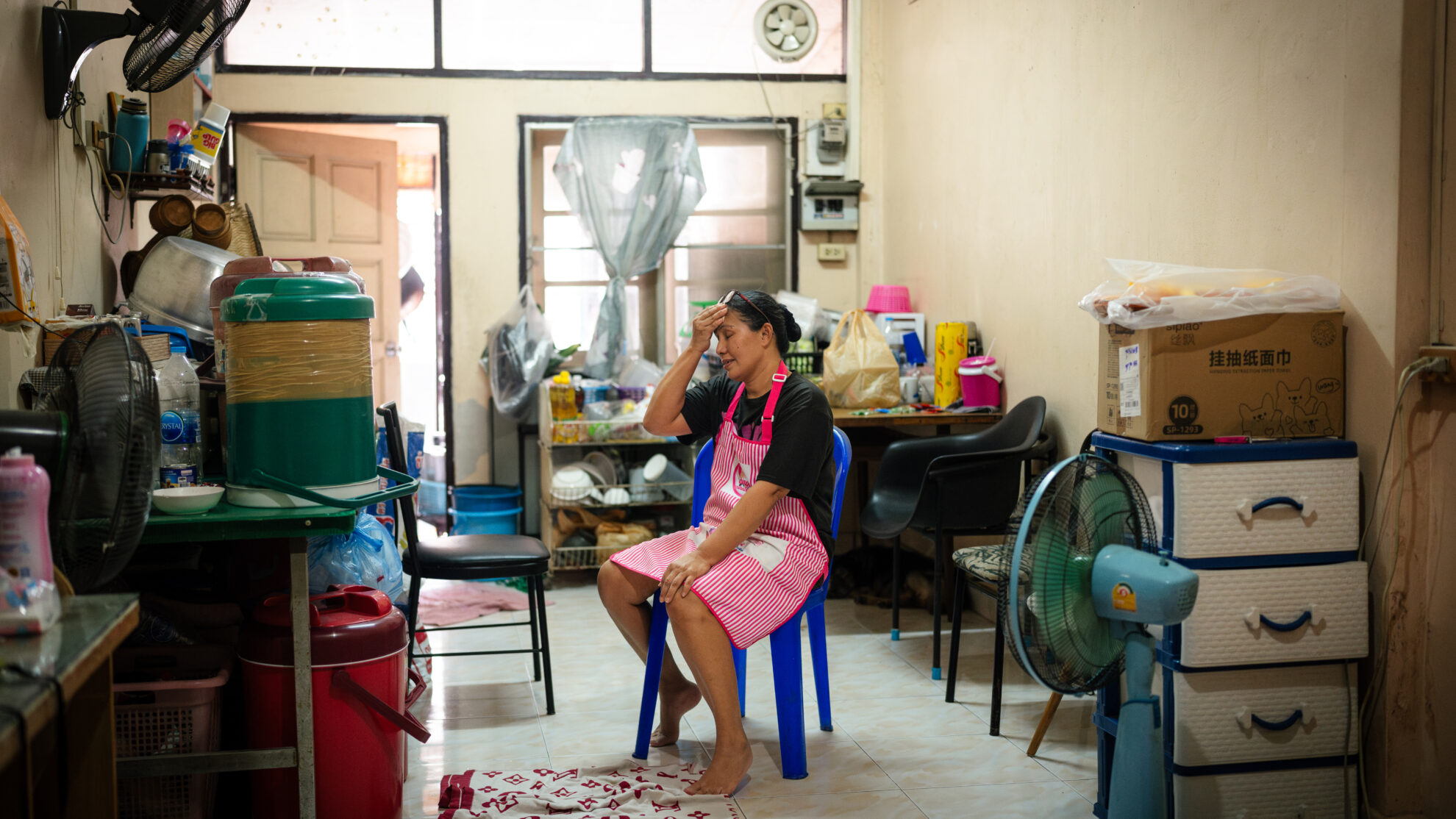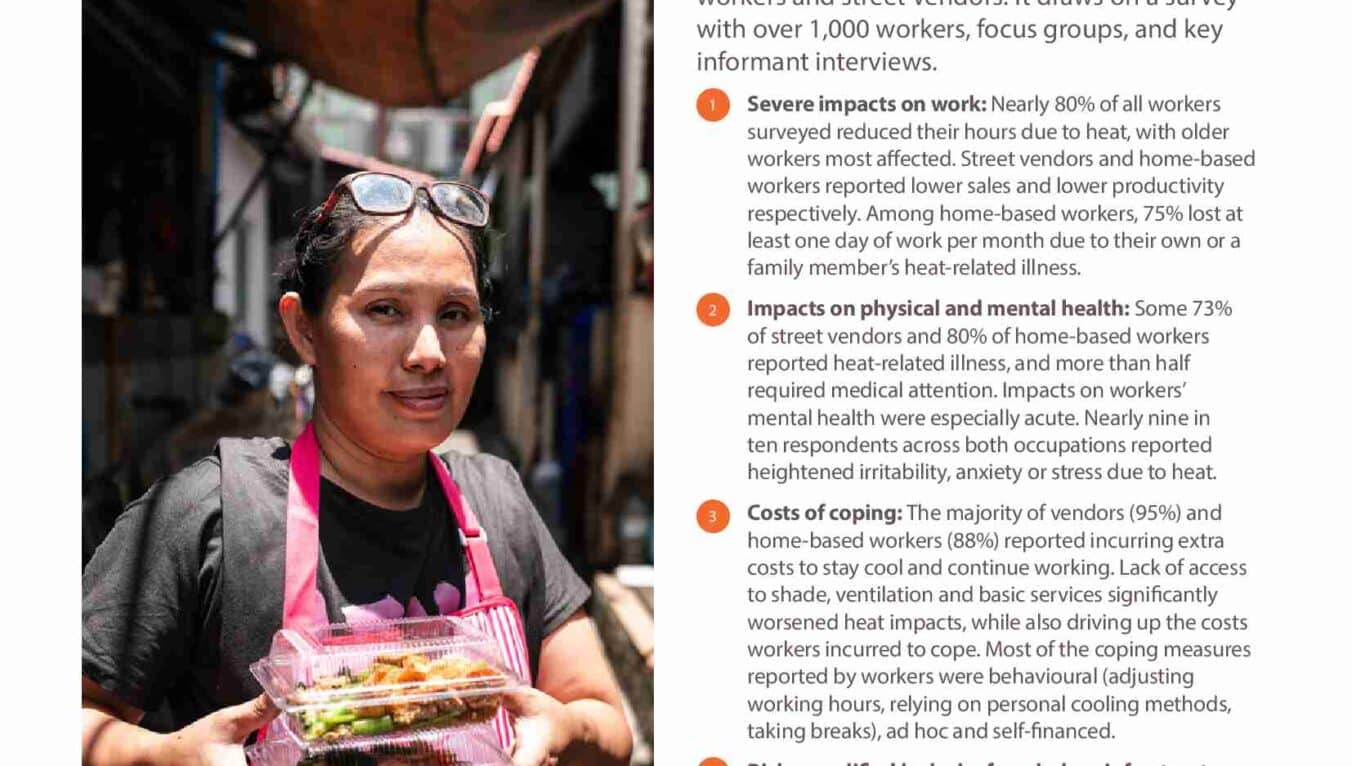Across WIEGO’s global network, climate change is a crisis for the urban informal economy, yet its impacts on these livelihoods remain overlooked in climate governance and under-researched. To address this gap, WIEGO, with support from Canada’s IDRC, is leading a three-year project focused on street vendors, home-based workers and waste pickers in Brazil, India, South Africa and Thailand.
The project documents how these workers experience extreme heat, flooding and other climate shocks, and how they adapt individually and collectively. Using surveys, focus groups and participatory research, it captures coping and adaptation strategies and highlights worker-led solutions. With Mahila Housing Trust and Asiye eTafuleni, the initiative showcases good practices in climate-resilient urban infrastructure, from slum upgrading to inclusive street market design.
We analyze inclusive climate finance and identify ways to channel resources toward workers and their organizations. We use the evidence that the project produces to strengthen advocacy in local and global arenas, influence urban governance, and support climate policies that are inclusive, effective and grounded in workers’ realities.

